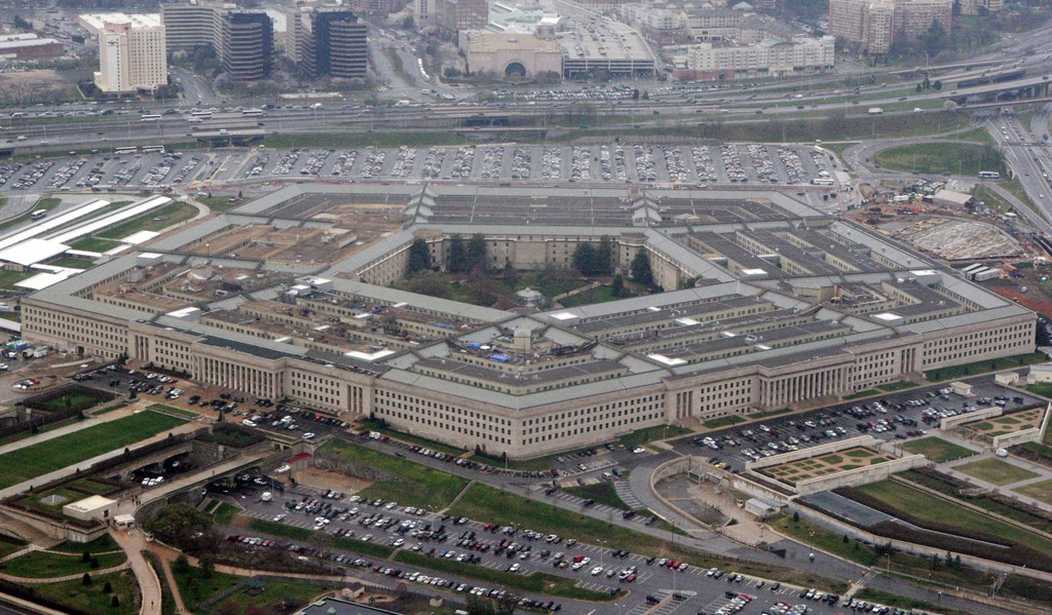When the U.S. House of Representatives was considering the fiscal 2024 National Defense Authorization Act in July, the American Civil Liberties Union -- a liberal organization -- sent a letter to members of the House. It expressed their opposition to a number of amendments being considered for the act.
What were the three amendments that topped the ACLU's list of those that should be stopped?
Republican Rep. Ronny Jackson of Texas sponsored the first. It, according to its official summary, would "prohibit the Secretary of Defense from paying for or reimbursing expenses relating to abortion services."
Republican Rep. Matthew Rosendale of Montana sponsored the second. It would "prohibit TRICARE from covering and the Department of Defense from furnishing sex reassignment surgeries and gender hormone treatments for transgender individuals."
Republican Rep. Ralph Norman of South Carolina sponsored the third. It would "prohibit provision of gender transition procedures, including surgery or medication, through the Exceptional Family Member Program."
"Since 1966," explains a 2021 Congressional Research Service report, "civilian care for millions of military retirees, as well as dependents of active duty military personnel and retirees, has been provided through a program still known in law as the Civilian Health and Medical Program of the Uniformed Services (CHAMPUS), more commonly known as TRICARE."
"Active duty servicemembers are required to use TRICARE Prime," says CRS.
"Between January 1, 2016 and May 14, 2021," said a CRS report published this August, "DOD reportedly spent approximately $15 million to provide gender-affirming care (surgical and non-surgical care) to 1,892 servicemembers."
On July 13, Jackson made the case for his pro-life amendment on the House floor.
Recommended
"In the wake of the Supreme Court's historic Dobbs decision overturning Roe v. Wade, the Biden administration immediately set out to sidestep the Court's ruling and circumvent the law wherever possible," he said.
"The Biden administration has encouraged every federal agency to create rules and adopt policies that not only expand abortion access but also leave American taxpayers on the hook to subsidize abortion services," Jackson said.
Under the policy announced last year by Secretary of Defense Lloyd Austin, Jackson explained, "DOD can and will reimburse travel expenses for servicemembers and their dependents who travel specifically to obtain an abortion in another state. The Department of Defense will also reimburse any associated fees for healthcare professionals seeking to be licensed in another state for the purpose of performing abortions -- all on the taxpayers' dime."
"Taxpayer funding of travel for abortion is, in fact, taxpayer-funded abortion," Jackson said.
The House voted 221 to 213 to approve this amendment to the NDAA.
Rep. Rosendale also spoke on the House floor that day to defend his amendment. It was "very simple," he said.
"It would prohibit TRICARE from covering sex reassignment surgeries and hormone treatment for transgender individuals," said Rosendale.
"The government has no business funding these procedures on the taxpayer's dime," he said.
Rosendale was countered by Democratic Rep. Adam Smith of Washington, the ranking member on the House Armed Services Committee. "We need transgender people to serve in the military," Smith said. "This amendment will make that more difficult and should be defeated."
Smith lost. The House voted 222 to 211 to approve Rosendale's amendment.
Rep. Ralph Norman also went to the floor that day to defend his amendment.
"Let me tell you what the Exceptional Family Member Program is," Norman said. "It provides resources to military families with special needs children. The program is designed for military spouses, children, or other dependent family members who require ongoing medical or educational services, such as individuals with asthma, autism, chronic respiratory illnesses, and others.
"Recently," he said, "the military has tried to politicize this valuable program for transgender procedure purposes."
"Hopefully, we can all agree we should not be using taxpayer dollars to help children get transgender procedures, but, rather, reserve these resources for children with special needs, chronic illnesses, and educational needs," said Norman.
The House approved Norman's amendment by a 222 to 210 vote.
Then it approved the full NDAA, as amended, by a vote of 219 to 210.
The next week, Senate Majority Leader Chuck Schumer gave a floor speech that criticized the House version of the NDAA -- without specifically citing either the abortion or transgender issues. "I certainly hope we do not see the kind of controversy that severely hindered the NDAA process over in the House," Schumer said. "Both sides should defeat potentially toxic amendments and refrain from delaying the NDAA's passage."
The NDAA approved by the Schumer-led Senate did not include language prohibiting the Defense Department from paying for or reimbursing abortion-related expenses. It did not prohibit TRICARE from paying for transgender surgeries or hormone treatments. It did not stop the department's Exceptional Family Member Program from providing gender transition surgeries or medications.
The final bill that emerged from the conference committee -- like the Senate version -- also did not do these things.
The Senate voted 87 to 13 last week to approve that final version. Then the House voted 310 to 118 to approve it -- with more Democrats voting for it (163) than Republicans (147).
The fundamental purpose of the NDAA is to defend Americans. But the version Congress approved this year does not defend unborn children from being carried into another state to be aborted; and it does not defend born children from government-subsidized gender transitioning.
Nor does it defend American taxpayers from being forced to pay for these things.

























Join the conversation as a VIP Member